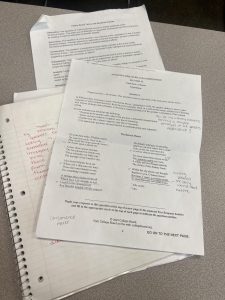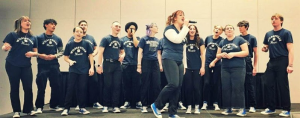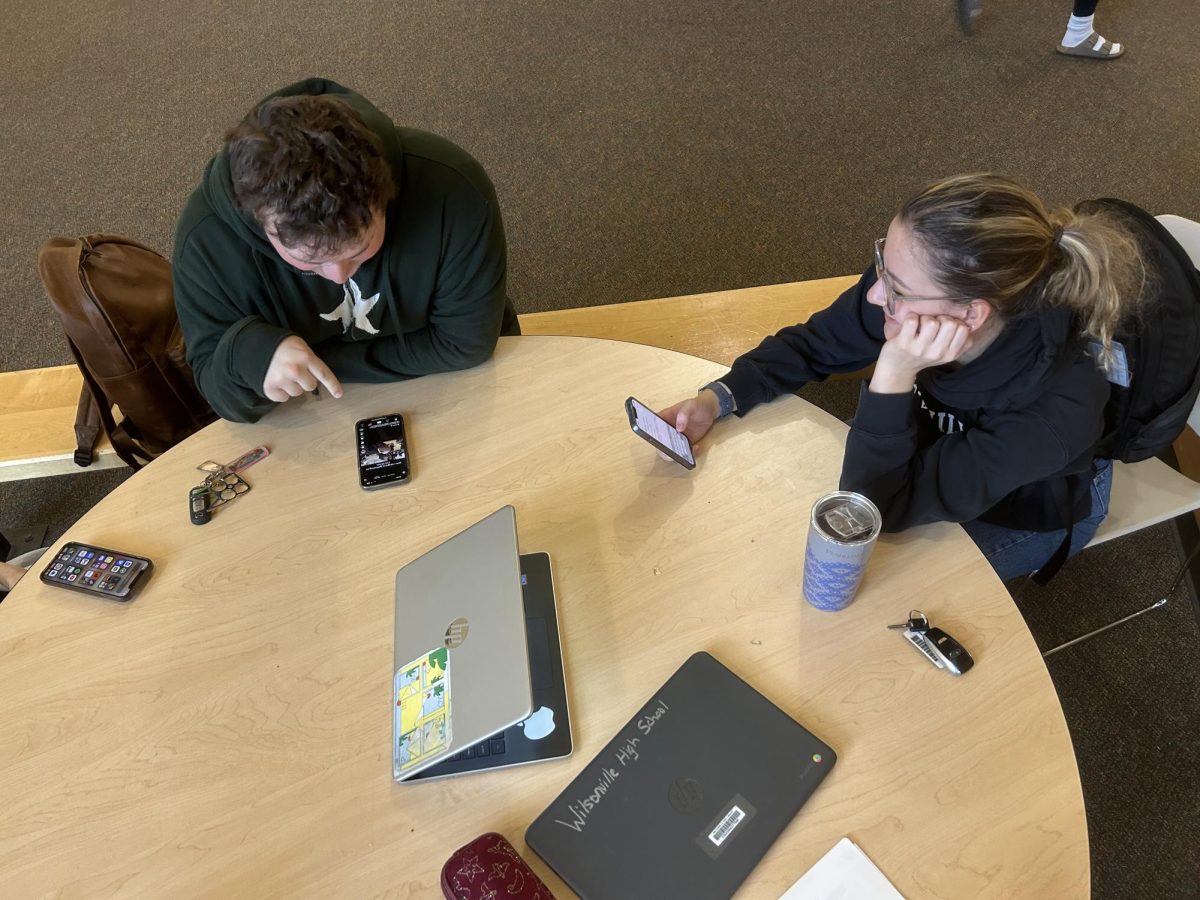Plaguing the halls of Wilsonville High School (WHS), a classic diagnosis is breaking out among seniors and even affecting younger-classmen. In the words of WVHS’ English teacher, Mr. Jenkins, “I know that after teaching high school seniors for 10 years it is not only real, but a multi-state affliction that permeates every facet of the minds of seniors. It’s a plague of international proportion.”
Some high schoolers experience this malady with severe side effects such as feeling mentally exhausted or checked out, and can result in students skipping class. The common denominator in all the chaos is senioritis, which has hit Wilsonville hard this semester.
Senior Cammy Gore highlights this condition by remarking, “Senioritis is a feeling that seniors get because summer is just around the corner. I definitely am feeling the effects but I have not let it affect my work ethic. My classes are difficult right now but graduation is just two months away and I’m motivated to keep working hard.”
Across the board, most seniors have been stuck by a lack of motivation. Even Mr. Jenkins admits to his case of senioritis from high school in sharing, “I may or may not have skipped class to go to the beach, to eat In-And-Out-Burger, or borrow cologne testers from a major department store.”
While many graduating students have already been accepted into college, others should be kicking it into high gear as the year rounds its halfway point.
Senioritis is a loose term used to describe the mental state of many seniors, but it also formally addresses a diagnosis that certain students actually pertain to. On a serious note, senioritis is a legitimate experience that causes serious emotions like anxiety and depression to strike seniors.
Classic “symptoms” can include skipping class, procrastinating assignments, and an overall disregard/disinterest in studies. Senioritis can weigh heavily on students and more than anything, challenges people mentally.
In a way, senioritis can concern all students, but some cases are greater than others. Current senior Jordan DeBolt says, “I have experienced senioritis badly. I’ve been in the state since junior year. I have also witnessed it with my friends, which I think plays a part in my experience.” The worst case scenario is that the poor habits of senioritis could carry into college and future careers.
Luckily, there are resources emplaced to help steer students away from the tempting hole of senioritis. It’s important to keep an end goal in mind to drive academic focus.
Another great way to deter from senioritis could be to change things up schedule-wise. Creating new daily patterns or finding something fresh in life can replace laziness and carelessness.
DeBolt continues, sharing, “I know there are still things I need to learn, but some classes I don’t go to, or I leave early from because I feel that there is on point being there. Thankfully, it hasn’t affected my grades too much.”
High school provides many different opportunities and experiences to become more marketable for colleges. This will cause your application to stand out with college admissions and show them how you are able to manage your time, participate in different activities and sports, and succeed academically.
It’s important to finish through high school. Grades do matter. Most college admin look at students’ grades leading into the end of junior year, and sometimes reference GPAs affected after the fall of senior year.
This being said, students are not encouraged to deprive themselves from fun and new experiences. Although there are many breaks built into the school year, some students still need a vacation every day, which isn’t a great routine to emplace indelibly.
Some students find that creating a support plan is helpful so they are held accountable by counselors, teachers, and peers for showing up and putting in the work. Still, others could care less about the end of the school year, and already consider themselves “graduates.”
As senioritis penetrates, Mr. Jenkins testifies to his students’ lingering side effects by articulating, “Without question (my students have senioritis). Much like a teacher who is about to retire, with only 3 months left of school, students may start feeling the impulse to ‘phone-in’ their intellectual and emotional presence.”
Many students wonder if high school grades matter in college. Essentially, high school GPAs evaporate the moment you get accepted to the college of your choice. And after college, those grades technically disappear when you get your first job, (or enter a graduate school).
Sophomore Vivian Williams emphasizes an important point in saying that, “College definitely motivates me to get good grades at school, especially since I am thinking I want to go somewhere out of state, I need to work hard in order to achieve that.”
She also speaks to the impact forecasting had on her motivation in sharing, “Forecasting made me think more about my future and my time at school. Personally, I want senior year to be pretty laid back but I do think that I will maybe have a challenge class or two.”
Although grades seem temporary, they can impact which opportunities students have in education and career. Senioritis can be a dangerous game to play, but sometimes, students can’t see when it’s coming for them.





